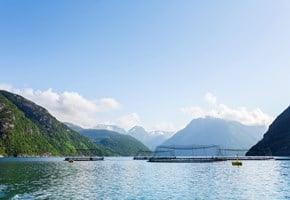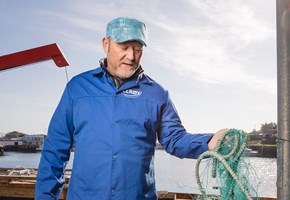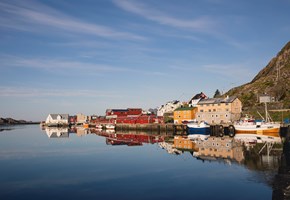Every year, Lerøy participates in the big Beach Cleanup Day. Our efforts benefit the enjoyment of us humans, but are particularly important to all the fish and birds that are completely dependent on a clean sea.
“We depend on the sea; it’s our livelihood. That’s why we’re keen to take as good care of it as possible – so that it can provide for our future livelihoods, too. Therefore, we wish to play an active role in contributing to a cleaner sea,” says Anne Hilde Midttveit, Head of quality and Sustainability at Lerøy Seafood Group.
Saturday, May 4 is the big Beach Cleanup Day for 2019 – an annual, nationwide environmental volunteer effort in which conservationists and eco-enthusiasts clean up beaches across the country, both along the coast and inland on the shores of rivers and lakes. The action is coordinated by Hold Norge Rent.
How Lerøy Fights Plastic Pollution
The fact that plastic in our seas has become one of the world’s biggest environmental challenges is nothing new. Lerøy has operations in several places along the coast in Norway, and it is only natural for a seafood company to participate in this action. It is important to help combat environmental challenges, and therefore Lerøy participates in several similar projects.
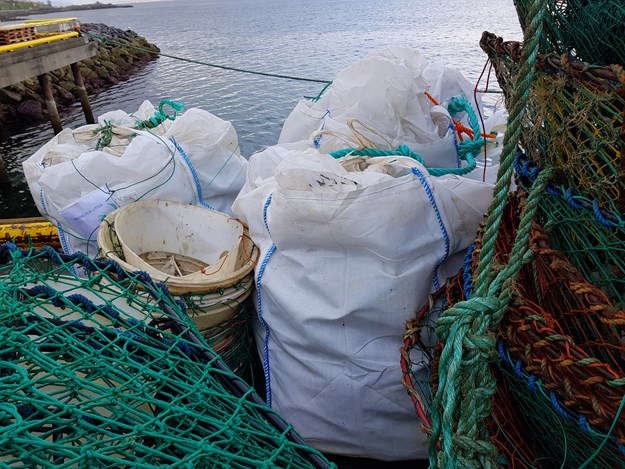
Fishing for Litter (FFL) is a measure to combat marine littering in Norway, conducted under the auspices of the Norwegian Environment Agency. Lerøy’s fishermen help by picking up whatever plastic and other debris they find in the sea when they are out working on their trawlers. The waste they collect is transported to the nearest Fishing for Litter reception point.
In the last two years, Lerøy has also delivered 924 tonnes of seines from net pens for recycling, via the Norwegian company Nofir. Nofir collects discarded equipment from the Norwegian and European fishery and aquaculture industries and recycles it to create clothing, furniture, etc. This prevents discarded equipment from ending up in the sea. At the same time, one helps to ensure that it will be recycled in the form of new products.
Internal Measures for Plastic Reduction
Anne Hilde Midttveit can also recount several other measures Lerøy has initiated to reduce its use of plastics and the amount of plastic waste generated by the company’s operations.
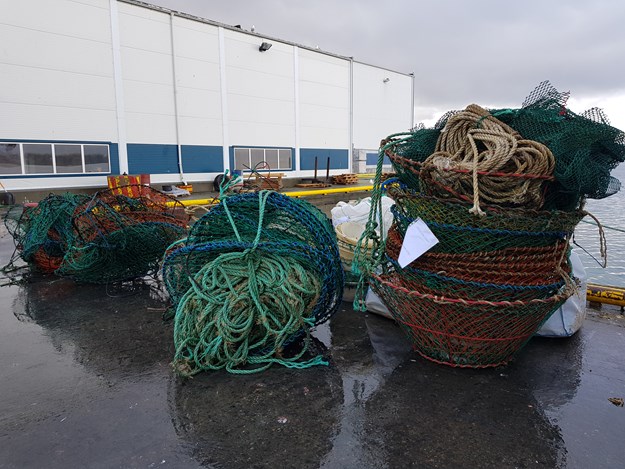
“We have initiated an internal project, 50/50-5, in which we have set a goal to reduce our use of non-recyclable plastics by 50 percent over the next five years. We are also actively working to develop new types of packaging in order to optimise our use of plastics,” she says.
A Collaborative Project to Reduce Waste
Lerøy has collaborated with BOF (Bergen og Omegn Friluftsråd) on various projects to combat plastic pollution. Among other things, Lerøy’s work boats are used to collect plastics that other actors have collected in hard-to-access places. In 2018, the company collected over 15 tonnes of plastic. To engage more people in this effort, Lerøy provides local organisations, schools, children and adolescents with transportation and food and covers other costs they may incur when picking up plastic litter.
“We would never have been able to collect so much without their help. Lerøy has an indispensable knowledge of local areas, and their boats allow us to travel near and far to collect various types of litter in inaccessible areas,” says the BOF’s Project Manager for Marine Waste, Gudrun Kristin Fatland.
Every year, enormous quantities of plastic are produced. The Norwegian Society for the Conservation of Nature estimates that 22,000 tonnes of plastic are flushed into the world's oceans every single day. Unlike paper and food waste, plastic that ends up where it doesn’t belong takes a very long time to break down. In the wild, an apple core decomposes in just a few months. A shopping bag can take up to 20 years, while a plastic bottle can take as long as 450 years to decompose.
Read also: Removing plastic and waste from our seas

